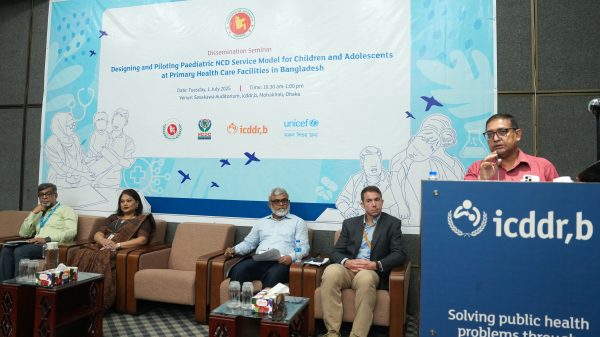Postpartum Care for New Mothers

- Update Time : Sunday, July 14, 2024

After enduring prolonged labor, new mothers often feel exhausted and need nutritious fluids and restful sleep. A warm bath or a sponge bath followed by comfortable clothing is essential. Using sterilized sanitary pads is recommended. For the first two hours after birth, the mother’s uterus should be massaged every 15 minutes to monitor bleeding. Both the mother and her caregivers should keep an eye on any excessive bleeding and seek medical attention if needed. There are medications available to stop bleeding. Within 30 minutes, the baby should be breastfed, which can also help reduce bleeding. Maintaining cleanliness is crucial to prevent infections. If the mother wishes to walk, she should have someone assisting her. It is also important to monitor the mother’s pulse, blood pressure, and the amount of bleeding.

Nutritional Needs of New Mothers
A balanced diet is crucial for new mothers. They should consume rice, fish, vegetables, lentils, fruits, meat, eggs, and milk. Additionally, breastfeeding mothers should eat an extra handful of rice twice a day, a bowl of thick lentils twice, and a bowl of vegetables twice daily. To meet calcium needs, vitamin C-rich fruits, ripe bananas, eggs, and milk should be included in the diet, providing an additional 500 kilocalories. Drinking plenty of water helps in milk production and recovery. Family members should support the new mother, and she should also take care of her health.
Mental Health
New mothers may become emotionally sensitive due to hormonal changes and stress, particularly first-time mothers. Irregular eating and sleeping schedules can lead to irritability. Family support is crucial during this period, especially from the husband. If the mother shows signs of postpartum depression or mental issues, consulting a doctor is essential. With proper support, the new mother can navigate this challenging time comfortably.
Exercise

Exercise is important to restore physical condition after childbirth. Due to significant blood loss during delivery, iron folic tablets and calcium tablets for breastfeeding should be taken for three months. It is also important to learn about birth control methods. For the first six months postpartum, heavy exercise or strenuous work should be avoided. However, regular walking and safe exercises can help regain fitness.
Breastfeeding
Colostrum should not be discarded, so breastfeeding should begin within 30 minutes. The mother should feed the baby whenever it cries or shows hunger signs. Proper attachment and position should be learned for effective breastfeeding. Adequate breastfeeding benefits the mother’s mental health as well. Loose, comfortable clothing is best for breastfeeding mothers. Improper breastfeeding can lead to milk accumulation, infections, or abscesses, causing severe pain. Proper breastfeeding is essential to prevent these issues. Breastfeeding triggers the release of hormones beneficial for the mother’s short-term and long-term health, protecting against anemia, obesity, diabetes, hypertension, blood lipid issues, heart disease, breast cancer, and ovarian cancer. It also aids mental health and family planning.
Author: Obstetrics and Gynecology Specialist















Leave a Reply